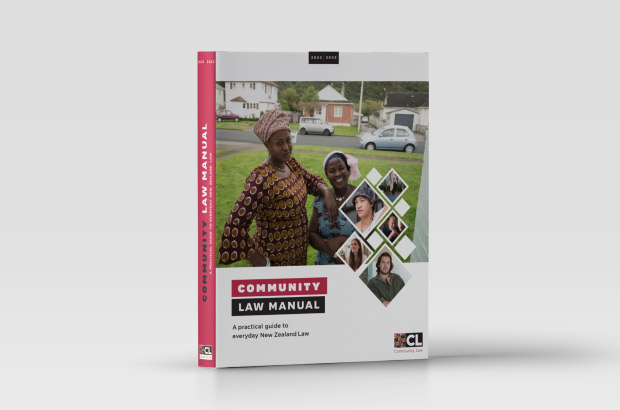Temporary Visas: Working, studying or visiting for a limited time
Health, character and money/sponsorship
Health requirements
INZ Operational Manual: Administration, A4.5, A4.15
For you to get a Temporary Visa, it must be unlikely that you’ll be a danger to the health of the New Zealand public or that you’ll place significant costs or demands on New Zealand’s health services or special education services. Immigration New Zealand will look at whether it’s very likely you’ll need to be hospitalised, or need long-term residential care (for example, in a rest home), or need high-cost medicines or disability services. You also have to be able to do the work or study that your visa application is for.
When Immigration NZ assesses your standard of health, they’ll take into account how long you want to stay here. It’s irrelevant that you’ll be able to pay for private health care or special education services yourself.
Immigration NZ can require you to have an assessment by one of their “panel” doctors. You can’t just go to any doctor – it has to be one who’s on their approved list (called “panel physicians”).
The health requirements don’t apply to you if you’re granted a Visitor Visa to get medical treatment or if you’ve been granted a “medical waiver” (an exemption).
What health information or certificates will I need to provide?
INZ Operational Manual: Administration, A4.5, A4.15, A4.25, A4.30
If you’re planning to stay in New Zealand more than 12 months, you have to provide Immigration New Zealand with a Medical Certificate and a Chest X-ray Certificate. People with risk factors for TB (tuberculosis) also have to provide a Chest X-ray Certificate if they’re planning to stay more than six months. However, pregnant women and children under 11 don’t have to provide Chest X-ray Certificates.
Immigration New Zealand can also require you to provide those certificates whenever they think it’s necessary, regardless of how long you’re planning to stay.
These certificates need to be from one of Immigration NZ’s approved doctors and radiologists, called “panel physicians”. If there aren’t any approved panel physicians in your country, you can use any officially registered or licensed doctor or radiologist. You can find out if there are any panel physicians in your country by going to the Immigration NZ website, here (or go to: www.immigration.govt.nz and search: “Find a radiologist or doctor near you”).
If your country uses the eMedical online system, you can simply give Immigration New Zealand the eMedical reference number the panel physician has given you, rather than printed certificates, and the panel physician will then send Immigration New Zealand the certificates.
“Character” requirements: Criminal offending and honesty issues
What exactly are “character” requirements?
Immigration Act 2009, ss 15, 16
In general, you have to be of “good character” to be able to get a New Zealand visa. What this means is that Immigration New Zealand will look at whether you’ve got a criminal record, and also at whether you’ve tried to deceive them.
If you have what Immigration New Zealand calls “serious character issues,” you won’t be able to get a visa and enter New Zealand except with special permission (see: “When could I be barred from getting any visa?”).
The Immigration Act sets out a list of what would be considered “serious character issues” – this includes things like serious criminal offending.
INZ Operational Manual: Administration, A5.45
But Immigration NZ’s policies also list some less serious character issues that will require you to get a “character waiver” from them before you can get a visa. You’ll have to apply specially to Immigration NZ for this waiver and show why you should still be granted a visa. You’ll need to do this:
- if you’ve ever given Immigration New Zealand false, misleading or forged information or held back relevant information (including if it was in support of someone else’s visa application)
- if you’ve ever been convicted in any country of a criminal offence against their immigration, citizenship or passport laws
- if you’ve ever been sentenced to jail
- if you’ve ever been convicted in New Zealand of a criminal offence for which you could have been jailed for three months or longer
- if you’re facing charges or an investigation for a criminal offence that would, if you’re convicted of it, raise a “serious character issue” and so legally bar you from New Zealand.
If any of these situations do or might apply to you, you should give Immigration New Zealand a full explanation about it when you apply for the visa, with supporting evidence. When they decide this issue, Immigration NZ can’t automatically turn you down – they have to properly consider all the factors in your situation.
Money or sponsorship requirements
To get a Temporary Visa, you have to be able to show that you can support yourself financially while you’re here, or that someone else (a “sponsor”) will support you. You also have to be able to show that you can afford to travel home again when your visa expires.
Work Visas
Immigration Act 2009, ss 48, 55 INZ Operational Manual: Temporary Entry, E6, W2.15–2.20
To get a Work Visa, you must meet these financial or sponsorship requirements:
- Living costs – You must either:
- already have enough money to live on while you’re in New Zealand, or
- have a proposed salary that is enough for you to live on in New Zealand, or
- have a guarantee from your employer that they’ll cover your living and accommodation costs while you’re here, or
- be sponsored by a relative or friend in New Zealand.
- Leaving New Zealand – You must either:
- already have a plane ticket out of New Zealand, or
- be sponsored, or
- have a written guarantee from your boss to pay the costs of you returning to your home country.
Student Visas
Immigration Act 2009, ss 48, 55 INZ Operational Manual: Temporary Entry, E6, U3.20–3.25
To get a Student Visa, you must meet these financial requirements:
- Living costs – Usually you must either:
- have enough money to live on while in New Zealand (for courses less than 36 weeks, you must have at least NZ$1,250 a month less any prepaid living expenses, while for courses of 36 weeks or more you must have at least NZ$15,000 a year less prepaid expenses), or
- be sponsored by a friend or relative, or by an organisation or a New Zealand government agency.
- Leaving NZ – Usually you must either:
- already have a plane ticket out of New Zealand or the means to buy one, or
- be sponsored.
Visitor Visas
Immigration Act 2009, ss 48, 55 INZ Operational Manual: Temporary Entry, E6, V2.20–2.25
To get a Visitor Visa, you usually must meet these financial or sponsorship requirements:
- Living costs – You must either:
- have at least NZ$1,000 a month to live on (or NZ$400 a month if you’ve already paid for your accommodation), or
- be sponsored by a person, organisation or New Zealand government agency.
- Leaving New Zealand – You must either:
- already have a plane ticket out of New Zealand or have the means to buy one, or
- be sponsored by a person, an organisation or a New Zealand government agency.


